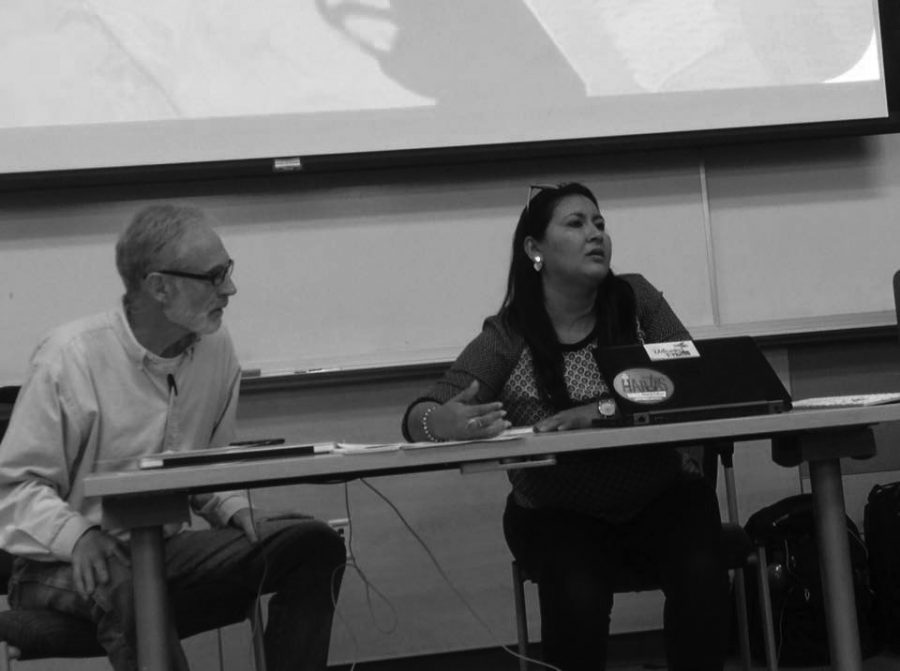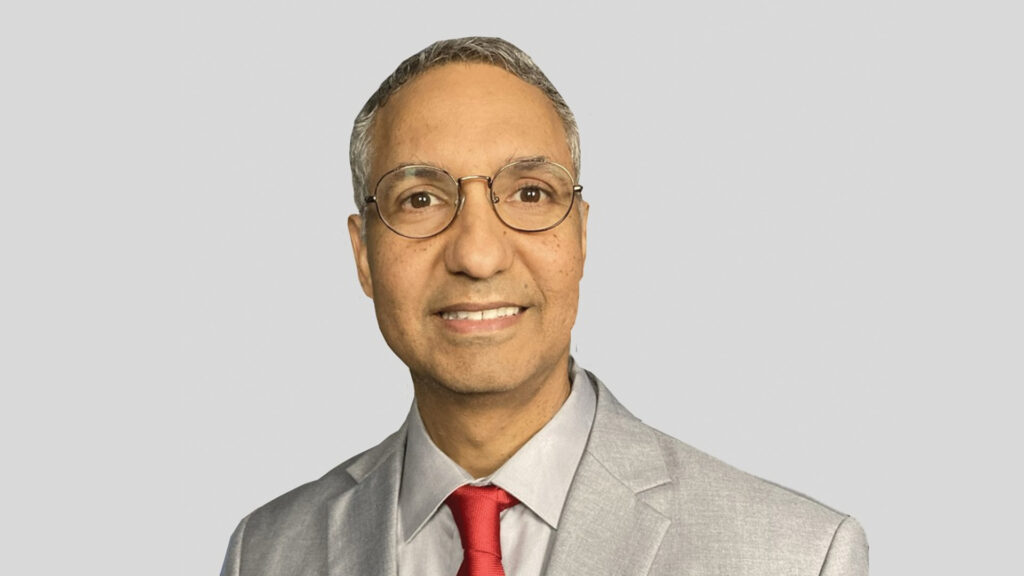Activist travels to EWU to stand by the people of Honduras
Dunia Aracely Perez, a feminist and human rights attorney spoke at EWU May 14. EWU alumni David Brookbank accompanied Perez and translated her presentation | Photo courtesy of Sarah Gutierrez
May 16, 2018
Activist Dunia Aracely Perez spoke out about the struggles of the Honduran people, whose claims are being repressed by their own government in compliance with the U.S.
As a feminist and human rights attorney, Perez is traveling throughout the U.S. providing awareness on the corruption of the Honduran government and its military force. David Brookbank, EWU alumnus, reached out to MEChA during the immigration march and told the club that he was helping bring Perez to Spokane to speak at several schools in the area. Brookbank accompanied Perez and translated the presentation, held on May 14.
“What’s happening in Honduras is not a recent problem,” Perez said. “It’s a combination of an endless number of unresolved economic, political, cultural and social problems. These problems became worse with the coup d’état in 2009.”
The constitution in Honduras was enacted in 1982 and it prohibits the reelection of the president of the country, according to article 239. Article four of the Honduran Constitution requires that the president alternates every four years. The current president is Juan Orlando Hernandez. He was re-elected in Nov. 2017 after establishing control over all the institutions in Honduras.
“The root of the problem that we are facing right now is the presidential re-election,” said Perez. “The current president of Honduras right now is therefore an illegal president.”
The articles of the constitution can only be changed by the people of Honduras. The attorney general of the country could have charged the president and the supreme court with treason against the nation, but he did not.
Juan Orlando Hernandez created the Military Police of Public Order in 2013. No president in the history of Honduras has ever had a military like it.
“What is the purpose of this?” said Perez. “To repress people of the country that question and to repress people that go into the streets protesting? This Military Police of Public Order is untouchable.”
According to Perez’s presentation, the country’s education budget has reduced from 33 percent to 20 percent and the defense budget has increased by 161 percent.
“The government should be investing in the well-being of its people, for example the health of the people, but instead it’s investing in this defense budget and you can see the consequences here,” Perez said.
Perez said one of the issues the people of Honduras are concerned about is the support of the U.S. government.
“The United States gives financing to the Military Police of Public Order that belongs to Juan Orlando Hernandez,” said Perez. “For Juan Orlando Hernandez to remain illegitimately and illegally in power as the president of the country is under the complicity of the U.S. government.”
Perez also talked about irregularities of the election and said that the Organization of American States and the European Commission reported that the election was not transparent.
”Never in the history of the Honduras did the actual voting machine go down as many as it did in this election of November 2017,” Perez said.
“These organizations questioned the results, but [because] they had the blessing of the United States, the result was nothing came to pass,” said Perez. “In this face of electoral fraud in Honduras, the people of the Honduras took to the streets as never before in history.”
The Coalition Against Impunity is made up of 50 organizations in Honduras that investigate human rights. The Reflection, Investigation and Communication, the organization that Perez is a part of, documented 38 people who were killed and 22 political prisoners during the protests after November 2017.
“One of the things that stood out the most was when she was talking about how the government wasn’t helping their people, especially trying to oppress them and keeping them quiet,” MEChA member Sarahi Gutierrez said. “In doing so it created a lot of casualties for a lot of young people.”
The Coalition Against Impunity seeks freedom for all political prisoners, the demilitarization of the public security forces of the country, pressure for the fight against corruption, acknowledgement of the nullity of the 2017 elections and a national dialogue called by the new government.
“The structure that has been created is called the Convergence Against Continuism, composed of diverse movements and social organizations […],” said Perez. “It’s a bringing together of all these groups so that we can form that position of unity more to this dialogue. The people of Honduras are peaceful and we believe that the way out of this is dialogue.”








Gene Ralno • May 17, 2018 at 8:11 am
The bottom line is we don’t get to choose what laws we obey. That principle is especially applicable in this case. If the government doesn’t enforce immigration laws, they can kiss the rest of the laws goodbye and prepare for anarchy.
David Brookbank • Jun 3, 2018 at 9:02 pm
I was the interpreter for Dunia at the event. I don’t remember meeting you there Gene.
It is not clear to me what you are referring to with you comment. Perhaps you misunderstood the article which makes no reference to immigration laws.
The article like the presentation by human rights attorney Dunia Pérez addresses the unconstitutional and illegal re-election of Honduran President Juan Orlando Hernandez, US support for that illegal process, the creation and use by Hernández of a newly-created military police to repress the population, and the mass opposition to this corrupt and illegitimate government, and peaceful resistance and movement for change by the people of the country.